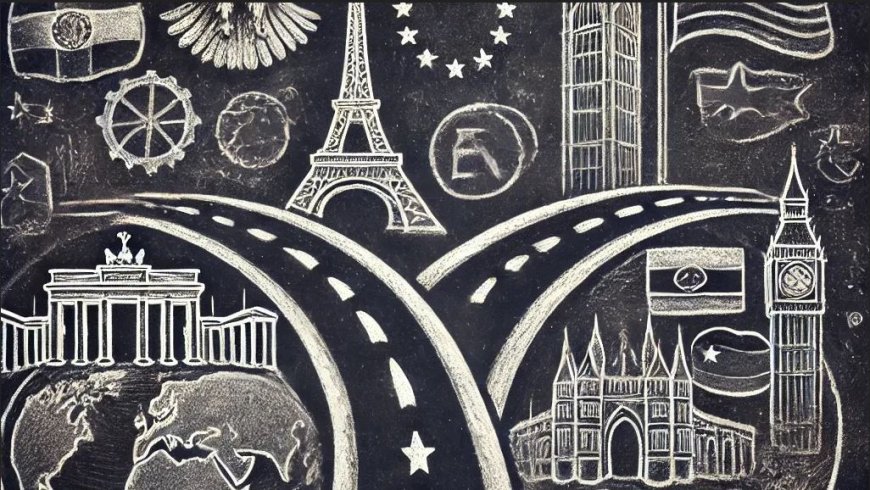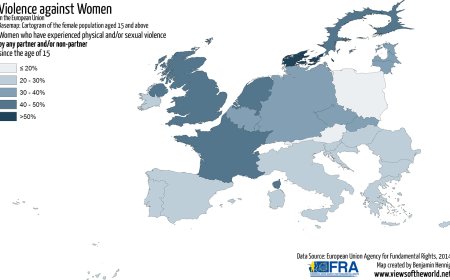Europe at a Crossroads: Navigating the Iran-U.S. Puzzle in a Shifting Global Order
In the ever-evolving geopolitical theatre of the 21st century, few relationships are as consequential—and as complex—as the one between Iran and the United States. Yet, in recent years, this bilateral tension has transcended the boundaries of Washington and Tehran. Caught in the middle of this diplomatic turbulence is Europe—positioned not only as a concerned observer but as an active player with vital economic interests and pressing security imperatives.

Europe at a Crossroads: Navigating the Iran-U.S. Puzzle in a Shifting Global Order
In the ever-evolving geopolitical theatre of the 21st century, few relationships are as consequential—and as complex—as the one between Iran and the United States. Yet, in recent years, this bilateral tension has transcended the boundaries of Washington and Tehran. Caught in the middle of this diplomatic turbulence is Europe—positioned not only as a concerned observer but as an active player with vital economic interests and pressing security imperatives.
European policymakers have long recognized that de-escalating U.S.-Iran tensions is not merely a regional concern—it is a continental necessity. A more stable West Asia translates directly into greater European energy security, reduced migration flows, lower risks of terrorism, and a more predictable geopolitical climate. Central to this strategic calculus is Europe's enduring commitment to multilateral diplomacy—both overt and behind the scenes. Even when official negotiations appear stalled, diplomatic dialogues often continue via trusted intermediaries and discreet backchannels.
Europe’s Strategic Stakes in a Stable Iran-U.S. Relationship
Europe's diplomatic overtures are rooted in a clear strategic vision: to prevent broader destabilization in West Asia. European governments have consistently pushed for dialogue between Tehran and Washington, deploying high-level envoys, facilitating indirect talks, and leaning on a network of backchannel mediators. These quiet efforts not only uphold the value of multilateral engagement but also foster trust-building mechanisms that could ultimately pave the way toward durable conflict resolution.
For Europe, the economic dividends of peace are immense. A stable Iran means uninterrupted access to one of the world's richest energy corridors. Reliable energy supplies and stable global prices would significantly enhance Europe's economic resilience, particularly amid global shocks. Politically, a calmer West Asia means fewer refugee crises, diminished extremist spillovers, and a geopolitical environment that is far more manageable.
The Paradox of Peace: Europe’s Geopolitical Dilemma
However, Europe's proactive diplomacy is not without its contradictions. Should Iran and the United States reach a comprehensive détente—particularly without meaningful European participation—Brussels could find itself sidelined. A bilateral breakthrough between Tehran and Washington could reduce Europe’s leverage in the region and alter its carefully balanced relationships with other key Middle Eastern players.
Moreover, a rapprochement might shift the regional balance of power in ways that complicate Europe’s broader strategic calculations. Such a development would necessitate a careful reassessment of existing alliances and long-term interests. Europe’s extensive involvement in Iran-U.S. negotiations is thus a double-edged sword: while peace is undeniably in its interest, the shape and process of that peace matter greatly.
The Cost of Strategic Dependency
A growing chorus of analysts warns that Europe's deepening alignment with U.S. Middle East policy threatens its diplomatic independence. Washington’s continued dominance over regional strategy leaves Europe vulnerable to what some call “strategic dependency”—a condition that erodes its ability to act autonomously on the global stage.
Indeed, while close U.S.-EU cooperation has yielded short-term gains, it has also constrained Europe’s room to maneuver. As the European Union integrates further into a U.S.-led security order, it risks diminishing its long-term geopolitical agency and influence—especially if American priorities diverge from those of European capitals.
A Strategic Path Forward
Ultimately, Europe's dual-track approach—championing multilateral diplomacy while relying on U.S. leadership—reveals the inherent complexities of global statecraft. On one hand, Europe has demonstrated its value as a peace-broker and diplomatic force in West Asia. On the other, its overreliance on U.S. policy risks weakening its independent foreign policy posture.
To safeguard its long-term interests, Europe must recalibrate. This means expanding diplomatic initiatives beyond Washington’s orbit, investing in deeper engagement with regional powers like Iran, and cultivating a diversified set of partnerships. It also means articulating and pursuing a clear, autonomous foreign policy rooted in European values and strategic goals.
Conclusion
Today, Europe finds itself both a potential beneficiary and a possible casualty of peace between Iran and the United States. The economic rewards of stability are clear—but they must not come at the cost of strategic irrelevance. By embracing proactive diplomacy, reaffirming multilateralism, and asserting its own agency, Europe can not only help shape a more stable Middle East—it can secure a stronger future for itself.
By: A. Mahdavi













































